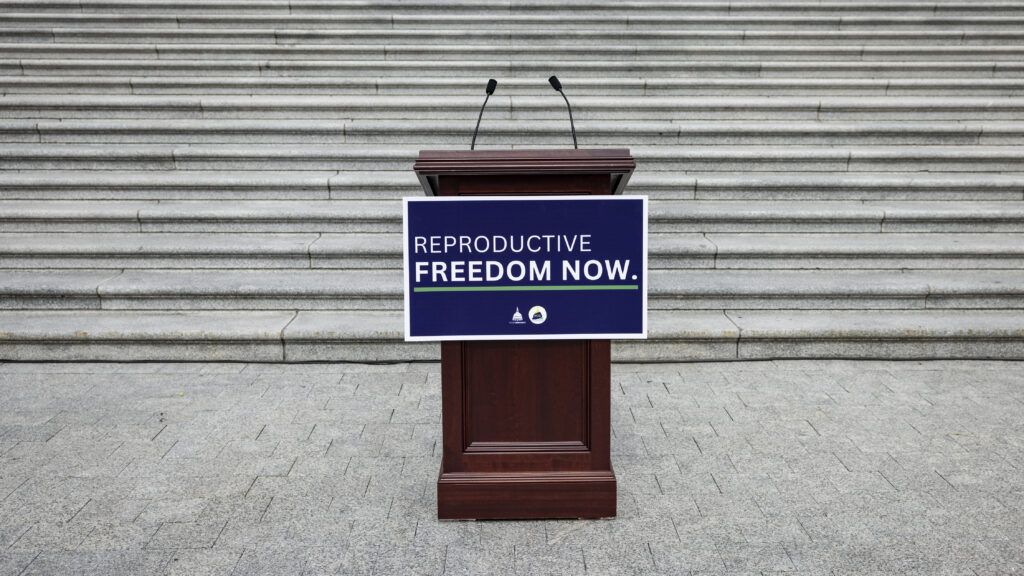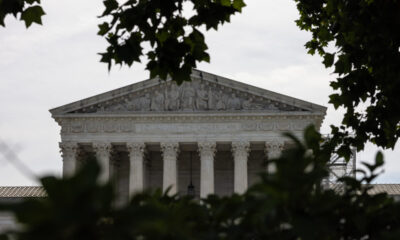Health
Biden’s abortion victories at the Supreme Court may be short-lived

WASHINGTON — The Supreme Court awarded President Biden two victories on abortion rights this month — but they could be short-lived.
The court made two major decisions on abortion that preserve or expand access to reproductive health care for now, but set off an even sharper debate over reproductive rights that will play out in the November elections.
In one case, the court rejected a lawsuit to restrict access to the abortion pill mifepristone. In the other case, the court allowed emergency abortions in Idaho. But lower courts continue to weigh both issues, and could ultimately return to the Supreme Court after appeal, although that likely won’t happen before November.
“If there’s one thing I want to make abundantly clear about both the EMTALA and mifepristone cases, it’s that neither has produced victories on abortion rights,” Alexis McGill Johnson, president and CEO of Planned Parenthood, told me , to reporters. EMTALA is the emergency medical care law at issue in the Idaho case.
“Rather than issuing clear statements, they have left open possibilities for these decisions to be revisited later, perhaps leaving this for when it is more politically expedient to say the quiet part out loud again,” she said.
The justices avoided bigger questions about state laws in the wake of the Roe v. Wade overturn and avoided getting involved in a litany of state abortion restrictions — to the chagrin of multiple justices on different sides of the issue.
“This is now in the hands of the voters and in the hands of the election process,” Idaho state Rep. Ilana Rubel, a Democrat, told reporters. “The courts won’t save us.”
Ten states have abortion policies on the ballot in November of this year. While most voters say this isn’t a top issue in determining their vote, a majority of women voters say this year’s election will have a major impact on abortion access in their state. according to KFF polls.
Biden and former President Trump will meet Thursday evening for their first election debate of 2024. Although Trump has emphasized states’ rights since the fall of Roe — and boasted that he appointed three justices who signed the Dobbs decision that overturned Roe — he also complained that certain states went too far with abortion bans and that members of his party “poorly handled” the issue during the midterm elections.
During the debate, Trump may be asked to answer for the consequences. And the Biden campaign is ready to attack.
“Donald Trump did this. He put women’s lives at risk,” Lauren Miller, an obstetrician who used to work in Idaho, said in a new television ad the Biden campaign launched Thursday.
In a 6-3 decision just hours before the game, the Supreme Court ultimately rejected Idaho’s attempt to overturn a lower court’s order on the state’s near-total abortion ban. The Biden administration argues the ban is illegal under federal emergency aid requirements known as EMTALA.
“[The EMTALA decision] does not change the fact that reproductive freedom is under attack,” HHS Secretary Xavier Becerra said in a statement Thursday. “When the Court overturned Roe v. Wade, it unleashed an unprecedented attack on reproductive rights, and every day we see the consequences.”
A vast majority of Americans saying that abortion should be legal under most or some circumstancescreating a dilemma for Republicans defending restrictions like the Idaho law, which federal lawyers say leaves a dangerous question about when a life-threatening condition is serious enough to warrant the procedure.
Judges heard from Biden administration lawyers in April that since Idaho implemented the law, one of the state’s largest hospitals has transported at least six pregnant women with serious complications to neighboring states to avoid run-ins with the law, prompting doctors who providing care could be punishable.
Federal attorneys argue that state law does not address situations in which a patient suffered a hemorrhage or suffered the loss of reproductive organs but was not in immediate danger of losing his life.
But some conservative justices questioned whether the Biden administration’s inclusion of abortion in emergency care requirements could open the door to federal encroachment on state laws.
Justice Samuel Alito also separately questioned the Food and Drug Administration’s authority to relax mifepristone prescribing rules, and in April the arguments nodded to the Comstock Act, a 150-year-old law against sending “obscene” material. The regulation, which Biden’s lawyer said has been “lifted” since the 1930s, could reemerge during a new Trump presidency as a new path to restricting mifepristone.
Some states have already taken steps to restrict the medication. Louisiana passed a law this spring making mifepristone a controlled substance, closing the door to telehealth prescribing. Some attorneys general have also said they plan to do so proceed with a legal challenge access to mifepristone.
Ultimately, the court’s open-ended rulings leave room for more confusion in hospitals and unnecessarily dangerous care, reproductive rights advocates argue.
In addition to Idaho, thirteen other states have passed abortion bans; Nearly half of U.S. states have passed abortion restrictions since Roe was overturned.
Rubel, the Idaho Democrat, said her party is exploring a ballot initiative to secure abortion access, but that it won’t be ready for this year’s election cycle.
Asked about the presidential debate just hours away and what she would like to hear from Trump on abortion policy, Rubel mentioned the departure of midwives from abortion-ban states, underscoring the thorny issue for Republicans heading into the election. “Is [he] proud of the impact this has had on the health care landscape for women in red states?”













